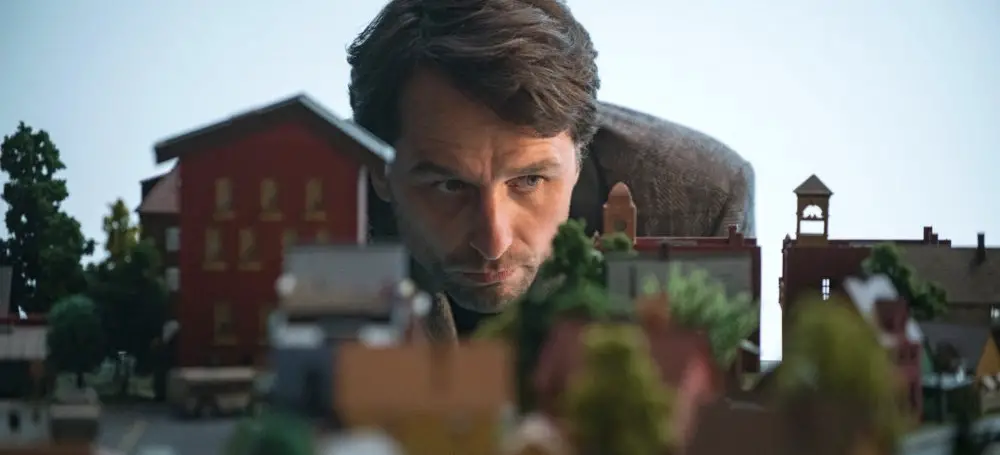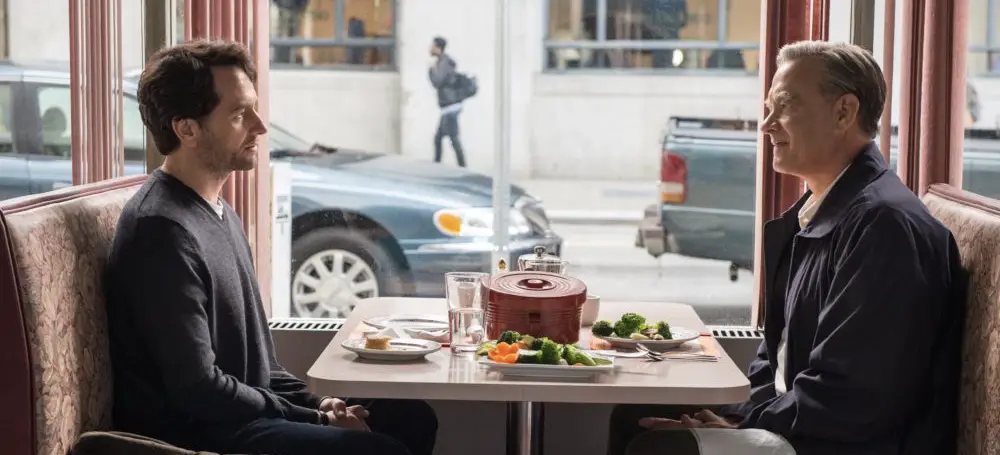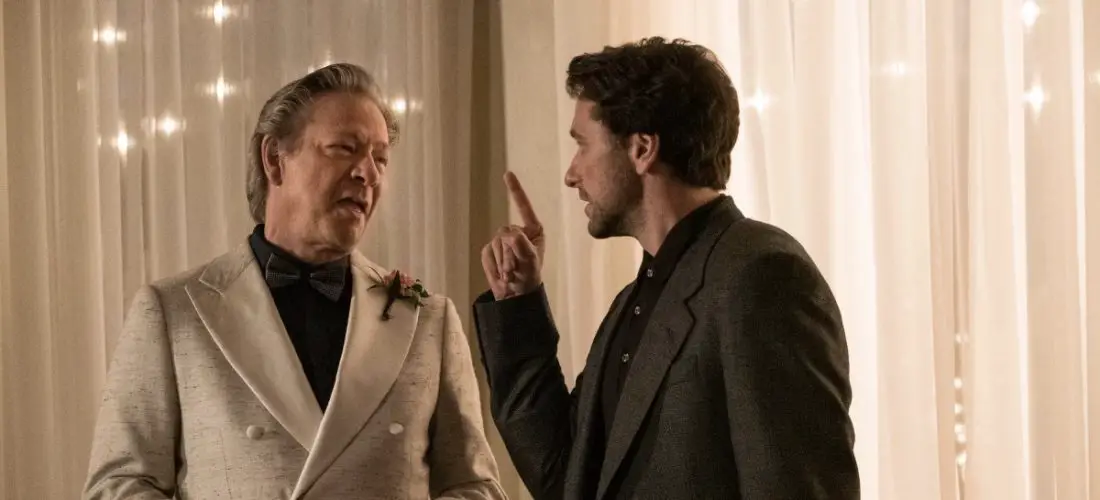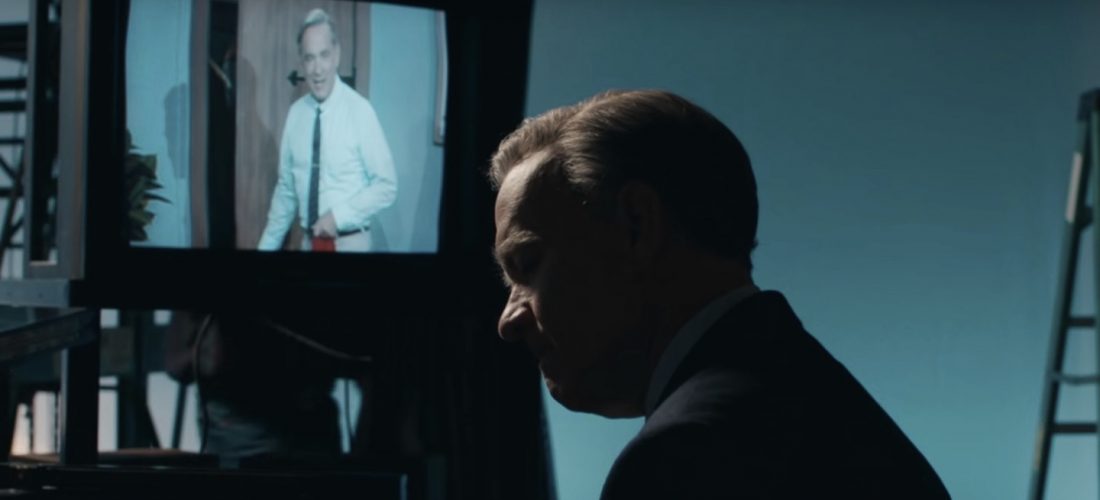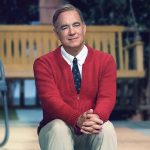‘A Beautiful Day in the Neighborhood’ Review: “A Cathartic Time In The Theater”
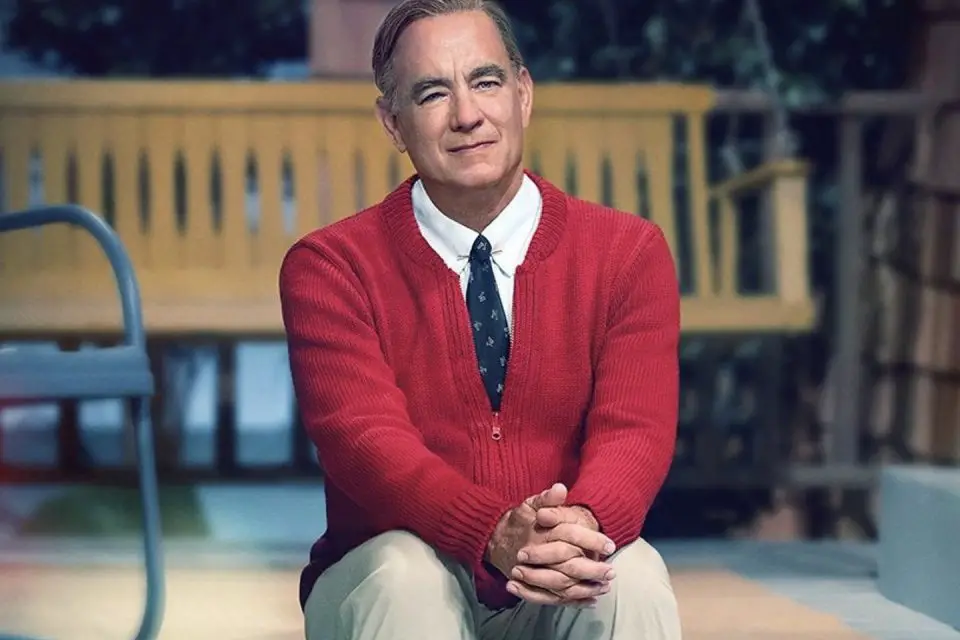
To say that Fred Rogers is just an iconic television personality is understating his grasp as an empathetic figure. Throughout his show, Mister Rogers’ Neighborhood, he was able to say the words that allowed children to open themselves emotionally. More impressive, though, is how often those emotions mix with real-world issues. Quite often, Rogers discusses concepts such as death and divorce in a way that anyone could easily understand. Because of that, we should give some credit to the people surrounding Rogers for making him a genuine legend. As luck would have it, we now have A Beautiful Day in the Neighborhood, a film all about the importance of those individuals.
This is significant because while it features Fred Rogers (Tom Hanks), he is not the main focus. Instead, the film’s protagonist is Lloyd Vogel (Matthew Rhys), who is assigned to write a profile piece for Fred. On the surface, he is a cynical person who refuses to believe that Fred is as compassionate as he appears on TV. Even outside of his work, Lloyd does not try in the slightest to have loving interactions with his family. It is only during his interviews with Fred that he starts to become more emotionally honest. Within the first 30 minutes, the film posits Lloyd as the latest in a series of people that need Fred for emotional and intellectual support.
As it turns out, this contrast of perspectives is not only essential to the narrative, but also the film as a whole. In an interesting move, Micah Fitzerman-Blue & Noah Harpster’s screenplay showcases the two ideologies at a frequent rate. For one thing, it opens and closes with a darkly humorous version of the show. In these bookends, Fred shows off a picture of a bruised Lloyd to the audience. From then on, we get to see Lloyd struggling to deal with his problematic father, Jerry (Chris Cooper). Once the two cross paths, all that Lloyd can dream about is imagery from the show and people from his life as the show’s characters. With all of this, A Beautiful Day… functions as an inviting two-hander in almost every facet.
From a visual perspective, director Marielle Heller finds unique ways to spotlight the worldview of both characters. Every scene transition embraces the lo-fi nature of Mister Rogers, complete with cheap miniature sets and VHS-quality footage. Even the opening and ending scenes feel like the show itself, with Hanks’s presence being the only notable difference. While Heller and cinematographer Jody Lee Lipes craft these moments with a candy-coated gloss, the same does not apply for the scenes with Lloyd. In this case, it takes on a more naturalistic approach to lighting, which fits with its main subject. Gone are the bold color choices and present is a flat and somewhat desaturated look.
But there is more to Heller’s visual storytelling than simply finding the right spot to emulate nostalgia-inducing production design. Simply put, she is terrific at expressing the powers of Fred Rogers without the need for elaborate ideas. This is most apparent in a restaurant scene where Fred asks Lloyd to think about the most important figures in his life. Not only does the scene place us into Lloyd’s perspective as Fred stares into the camera, but Heller also funnels out the background noise. Thanks to these directorial decisions, we see the gears of Fred’s mind shift in real-time as Lloyd starts to tear up. As a result, this long moment of silence feels weighty even though little is happening on the surface.
Based on these descriptions, A Beautiful Day… seems like a recipe for unqualified success. And to the credit of the two leads, it plays up its strengths most of the time. Sure, the casting of Hanks means that this version of Fred Rogers looks much different from the man himself. In spite of that, Hanks’s quiet demeanor and slow speech patterns beautifully capture the compassionate person present in the script. Elsewhere we have Rhys, who manages to convey frustration and cynicism with the most minor of facial expressions. Neither have a lot to work with in terms of character background. However, both add depth even in places where the material is not compelling.
Unfortunately, there are quite a few of those places in the film, and all of them share the same problem: Lloyd’s struggles are not particularly insightful. To be sure, the screenplay lays out the story beats with efficiency, but the positives do not extend beyond that. In terms of its exploration of parenthood, it has little to say other than the boilerplate message of “raising a child is hard”. Worse than that, though, is the character of Jerry. Thanks to Cooper’s one-note performance, he comes across as nothing more than a cartoonish stereotype of a parent. Considering that a key moment involves Lloyd trying to rebuild his bond with Jerry, it is a shame that A Beautiful Day… does not do much to make this section thrive.
The film also reaches a point where Heller’s juggling act of various stylistic approaches wears out its welcome. Make no mistake, it is endearing the first time it moves through a miniature of the actual setting. However, when this visual motif keeps occurring in a film that is otherwise grounded in reality, it breaks the intended mood in a rather clumsy way. Perhaps if the script committed more to the structure of a Mister Rogers episode, then the cuts to the miniatures would feel less jarring. But in its current form, the scene transitions feel like a cost-cutting measure and nothing more.
By all accounts, A Beautiful Day… features a screenplay that is one draft from completion, and it has an imperfect way of covering up its flaws. Yet when it gets to the scenes of major catharsis, it cannot help but feel earned. And if Heller has not mastered crafting the big picture, at least she has mastered the details of intimate interactions. To be sure, a more assured movie could be made out of Fred Rogers’s impact on people. In fact, I would argue that the 2018 documentary Won’t You Be My Neighbor? fits that description nicely. Still, enough of this works for it to be an engaging and humanistic movie, which is quite refreshing in a year as unwelcoming as 2019. – Mark Tan
Rating: 7/10
A Beautiful Day in the Neighborhood is now playing in theaters.
The film stars Tom Hanks, Matthew Rhys, Chris Cooper, Susan Kelechi Watson, Maryann Plunkett, Enrico Colantoni, and Tammy Blanchard.

